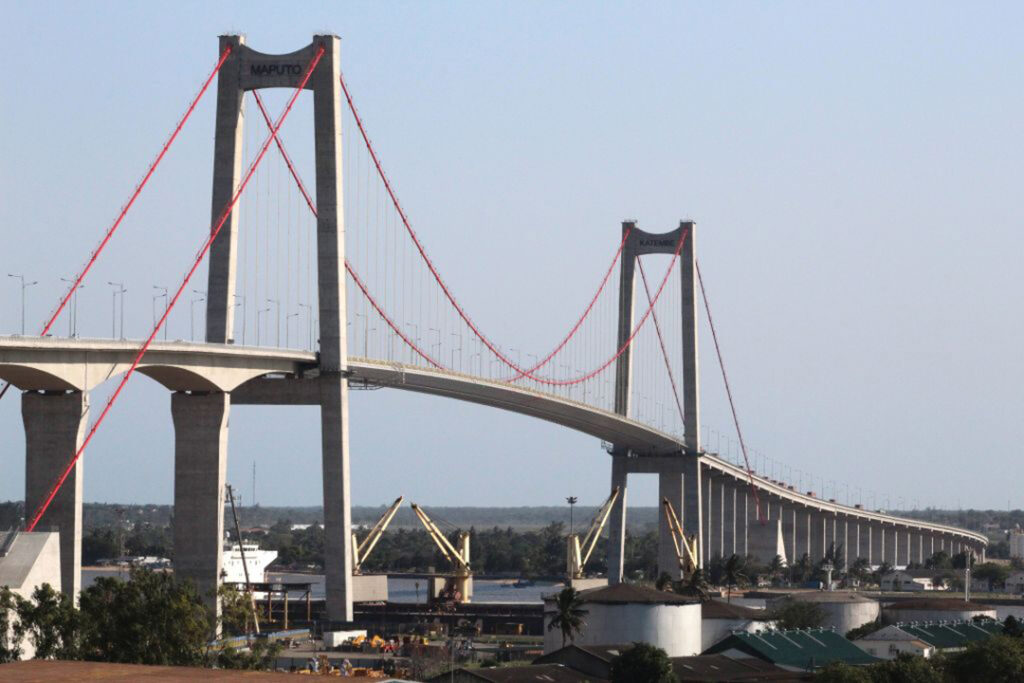ADF STAFF
China’s Belt and Road Initiative (BRI) was supposed to tie large portions of the world together, but the project may be coming apart in Africa due to debt, poorly designed and vetted projects, and the damage of COVID-19.
“The image that you get of the Belt and Road in grand halls is different than the reality on the ground,” researcher Jonathan Hillman told Australia’s United States Study Centre.
Hillman is senior fellow and director of the Reconnecting Asia Project at the Center for Strategic and International Studies. He recently published a book assessing BRI.
In writing his book, Hillman traveled the world to see BRI projects. That included trips to Djibouti, where Chinese debt consumes nearly 35% of gross national income, and to Kenya, where the BRI-funded Mombasa-to-Nairobi Standard Gauge Railway symbolizes the burden some BRI projects have placed on host countries.
The $3.6 billion undertaking, which is Kenya’s largest-ever infrastructure project, was based on moving freight tonnage more than double the railway’s actual capacity. The loan with China’s Export-Import Bank keeps many of the loan’s conditions secret. And the project saddled Kenya with debt payments that will reach $1 billion this year.
Angola, Ethiopia and Kenya are three of China’s top five debtor nations. The others are Laos and Pakistan.
“There’s no question China has been an irresponsible lender in some of these projects,” Hillman said. “I am a believer in evaluating projects on objective criteria, which is more than the Belt and Road has done so far.”
China began pulling back on its BRI-related loans in 2018 and, along with debtor nations in Africa and elsewhere, entered a period Hillman calls “The Great Renegotiation.” Financial pressure from the COVID-19 pandemic is making renegotiating lending agreements more urgent.
“We are seeing so many countries go into renegotiation mode with China,” Agatha Kratz, associate director at Rhodium Group, told Investment Monitor. “There are an enormous number of cases compared with previous years.”
If China can’t or won’t provide enough relief to its borrowers, it could find itself caught in a debt crisis in developing markets. So far, China has forgiven less than 2% of the debt it is owed worldwide.
“China must come to terms with the fact that it may never recover most of its investments or loans because of the global pandemic,” said Claremont McKenna College Professor Minxin Pei, writing in The EurAsian Times. “The smartest way forward would be to write off its loans on compassionate gesture and win the hearts of the people.”
So far, that’s not happening. As a member of the G20, China has agreed to some debt relief for African nations. But most of China’s loans are through the state-backed Export Import Bank or China Development Bank. Those loans carry commercial interest rates and, so far, have come with little relief for borrowers.
China’s loans to African nations over the past decade or so range from $29.4 billion in Angola to $25 million in The Gambia. The Export-Import Bank is by far the biggest lender, according to an analysis of China’s BRI spending by Boston University (BU).
All told, China has funded $100.6 billion in African projects between 2008 and 2019, according to the analysis. That’s about one-fifth of what BU researchers estimate China has spent on BRI projects worldwide in that period.
Katz notes that the BU analysis includes only loans acknowledged by China and the recipient countries. Some Chinese loans come with confidentiality agreements that force borrowers to hide the size and condition of the loan, meaning debt obligations in Africa are likely even larger.
With the pressure of the COVID-19 pandemic bearing down on them, African nations already have begun defaulting on some of their debt. Zambia was the first when it failed to make a Eurobond payment last fall. Analysts worry Angola or Mozambique could be next.
In attempting to extend its power through questionable infrastructure investments, Hillman said, China is learning a key lesson: “Historically, most infrastructure booms have gone bust.”

